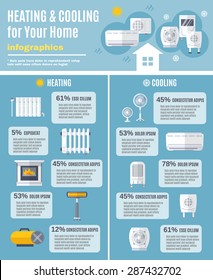Maximizing Convenience And Cost Savings - Tips For Optimizing Your Heatpump Efficiency
Maximizing Convenience And Cost Savings - Tips For Optimizing Your Heatpump Efficiency
Blog Article
Material By-Bang Gunter
Whether you possess a heatpump or have an existing boiler back up, there are a few things that can be done to optimize your system for efficient operation. By following these pointers, you can make best use of convenience and financial savings without straining your system or acquiring energy bills.
Changing your thermostat for effectiveness is among the initial steps. Making use of zoning capabilities to limit heating of vacant spaces is another effective strategy.
1. Set Your Thermostat to the Right Temperature
As the seasons transform, balancing comfort and price effectiveness can be a difficulty. Thankfully, a few simple ideas can aid you decrease power intake and optimize savings.
Begin by figuring out the best temperature for your family members, after that establish your thermostat as necessary. Avoid making huge raise and down in the temperature setup, as this will certainly trigger your heatpump to cycle on and off more regularly, consuming a lot more power.
Instead, progressively lower the temperature during the night for a more comfortable sleeping environment. After that, increase it a little in the early morning. Keep in mind to keep air vents open and guided downward when heating, and up when cooling to maximize blood circulation.
2. Examine Your Unit Routinely
A heat pump system calls for very little maintenance, however it is necessary to examine the system consistently to catch any issues before they become severe. Clean indoor filters on a routine established by the manufacturer or when they're noticeably dirty, and make sure outside units contend the very least two feet of clearance to permit air movement.
Evaluating the unit will additionally consist of cleaning, tightening up electric terminals, and running performance tests to guarantee accuracy throughout home heating and cooling down settings. It's recommended to have a professional solution the heat pump two times a year. Carrying out these routine services can make the most of energy savings and prolong the life of the system.
3. Clear Snow and Ice Around the Device
Heat pumps are designed to run outdoors and need to be free of snow and ice in order to distribute air. If your heat pump is blocked by snow and can't draw in air, it will certainly toggle between heating & cooling and may overwork.
It is very important to remove a two-foot clearance around your outdoor device in order to boost air flow and avoid ice buildup. Heatpump normally go into a defrost setting in the wintertime to thaw ice and snow yet this procedure can be troublesome if your unit is obstructed by excessive snow. This will reduce your energy performance and lead to pricey repair work costs in the future.
4. Examine the Refrigerant Levels
A heatpump makes use of cooling agent to cool your home in summertime and warm it in winter season. You can help maximize its performance by routinely examining the cooling agent levels.
It takes extra power to transform the temperature level of your heatpump from a comfortable setting to a colder one than it does to keep that temperature. Changing the temperature level for brief periods of time can additionally waste energy.
Leaking air ducts and filthy air filters can cause uneven temperature levels. They can additionally make your heatpump much less effective and cost more to run. A specialist can situate and repair these problems to improve your heat pump's performance.
5. Optimize Your Zoning Capabilities
Making use of the zoning abilities of a heat pump can help to reduce energy waste by heating up only occupied areas. This not only reduces energy consumption but additionally reduces operating costs and prolongs the life of the system.
The Build Well balanced Zones tool makes use of a hereditary algorithm to construct zones that fulfill required zone structure criteria. These criteria consist of equivalent location, compactness, and equal variety of features.
Furthermore, by utilizing https://facilityexecutive.com/2015/11/hvac-coil-cleaning-methods/ to enhance the temperature setups based on tenancy patterns and organizing, you can better boost your heat pump's effectiveness. Maintaining a tidy air filter, ensuring correct insulation and having your ductwork examined for performance can all contribute to boosted power savings as well.
6. Shielding the Outdoor System
Property owners often ask whether it's worthwhile to plant shade trees near their outdoor ac unit (A/C) device. The answer is usually of course, as shading the air conditioning unit can help reduce heat from the sunlight, which in turn aids it cool down more efficiently.
However, it's important to keep in mind that shading the air conditioner system does not always cut energy usage. As explained in the Discussion section of the FSEC record, the temperature of the surrounding air has a bigger influence on cooling down effectiveness than does the quantity of air pulled in by the a/c.
If your a/c compressor gets on the south side of the house, take into consideration growing tall, deciduous trees with broad, vast canopies. These can offer adequate shade within one year.